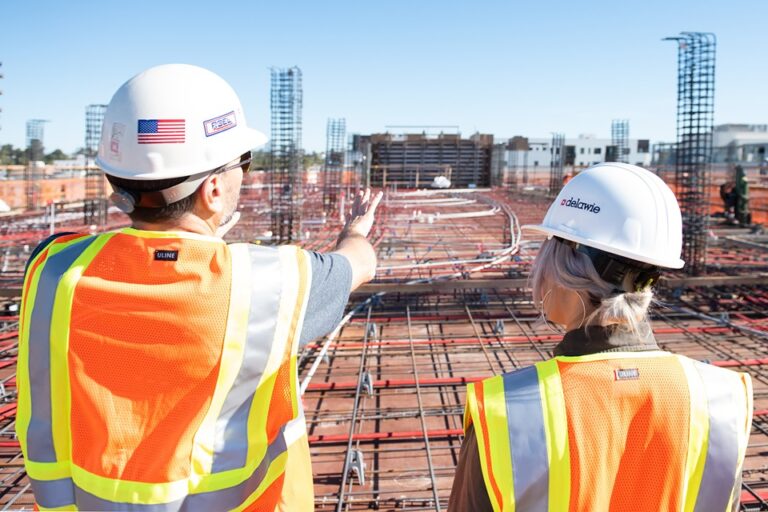In the dynamic world of construction, project management stands as the steadfast lighthouse guiding all operations toward success. Mastering construction project management is akin to learning a fine art; it requires a balance of technical knowledge, leadership skills, and a thorough understanding of the industry.
This article seeks to equip you with all of the tools and insights necessary for excelling in construction project management, an incredibly challenging and rewarding field. Our focus will be on effective strategies, key principles, and best practices that will set you on the path toward becoming an expert in project construction management.
After reading today’s article, be sure to check out this article from Bridgit on the ultimate guide to construction project management.
Effective Strategies In Construction Project Management
Let’s delve into some stellar strategies that have proven to be effective in the field of construction project management:
- Planning: Planning is the cornerstone of any successful construction project. A well-structured plan includes project goals, timelines, resource allocation, and risk assessment. By defining these elements upfront, you can ensure that your team follows a clear path towards project completion.
- Communication: Effective communication is essential throughout the project’s lifespan. Regular updates, meetings, and reports keep everyone on the same page and help mitigate any potential misunderstandings or conflicts.
- Risk management: Construction projects inherently involve risks. A good project manager identifies potential risks early, prepares contingency plans, and takes action quickly when issues arise.
- Quality control: Regular inspections and quality checks can prevent minor issues from escalating into major problems. Maintaining high-quality standards throughout the project ensures the delivery of a superior final product and safeguards your reputation in the industry.
- Budget management: Keeping your project within budget is crucial. This involves careful planning, regular cost monitoring, and swift action when costs threaten to overrun.
Key Facets Of Construction Project Management
Understanding the key facets of construction project management can make the difference between a project that meets all its objectives and one that falls short. Here are the significant elements that you should consider:
- Scope management: This involves clearly defining the project’s goals, objectives, and deliverables. It also includes managing any changes to the scope during the project lifecycle.
- Time management: This facet refers to the process of ensuring that the project is completed within the set timelines. It involves creating a detailed work schedule and monitoring the project’s progress.
- Cost management: Estimating costs, creating a budget and keeping track of expenses to ensure the project doesn’t go over its allocated budget are all essential steps in successfully completing any project.
- Quality management: This includes any activities designed to ensure that the project output meets required standards and achieves its goals.
- Human resource management: This involves organizing and managing the project team. It includes tasks such as team formation, assigning roles, and conflict resolution.
- Communication management: This facet involves ensuring clear and effective communication among all project stakeholders. It includes developing a communication plan and managing the flow of project information.
- Risk management: Risk identification and control refers to identifying, assessing and mitigating any potential threats that might impede a project’s success.
- Procurement management: This involves acquiring necessary goods and services from external sources. It includes activities such as contract negotiation and supplier selection.
- Stakeholder management: This involves identifying all stakeholders, understanding their expectations, and managing their influence in relation to the project goals.
By mastering these components of construction project management, you can ensure its successful conclusion, meeting its objectives in terms of scope, timeframe, budget and quality.
Best Practices In Construction Project Management
To truly master construction project management, adhering to industry best practices is paramount. Project management best practices not only facilitate project execution more smoothly but can also significantly enhance its outcomes. Let’s examine some of these techniques now.
Embrace Technology
Incorporating advanced project management software in your operations is crucial. These tools aid in planning, tracking, scheduling and reporting, making the process more efficient and less prone to human error.
Regular Training
Equip your team with the latest industry knowledge and skills through regular training sessions. This can significantly enhance their productivity and ensure they’re up-to-date with the newest practices and regulations.
Safety Measures
Prioritize safety. Ensure all safety guidelines are strictly adhered to at the construction site to prevent accidents and injuries. Regular briefings and safety drills can help promote a safety-conscious culture.
Sustainable Practices
Implement environmentally friendly practices, including proper waste management, using sustainable materials, optimizing energy efficiency, and employing cutting-edge structural design software in your construction projects.
Client Engagement
Keep clients regularly updated on the project’s progress. Their input and feedback are invaluable, as they can help prevent miscommunications and ensure the final output aligns with their expectations.
Documentation
Maintain thorough documentation of every phase of the project. This includes contracts, plans, reports, change orders, and more. Good record-keeping can protect you in case of disputes and also provide a reference for future projects.
Post-Project Evaluation
Conduct a post-project analysis. Assess what went well and note potential areas for improvement; this practice can give valuable insights for future projects.
Mastering The Art Of Construction Project Management Means Considering It All
In conclusion, effective construction project management is a multifaceted discipline that requires a comprehensive understanding of various aspects, including scope, time, cost, quality, and human resource management, among others.
Embracing best practices can significantly improve the project’s outcome and enhance your reputation as a construction project manager. Remember, success in this field stems from continuous learning, adaptation, and implementing effective strategies.


